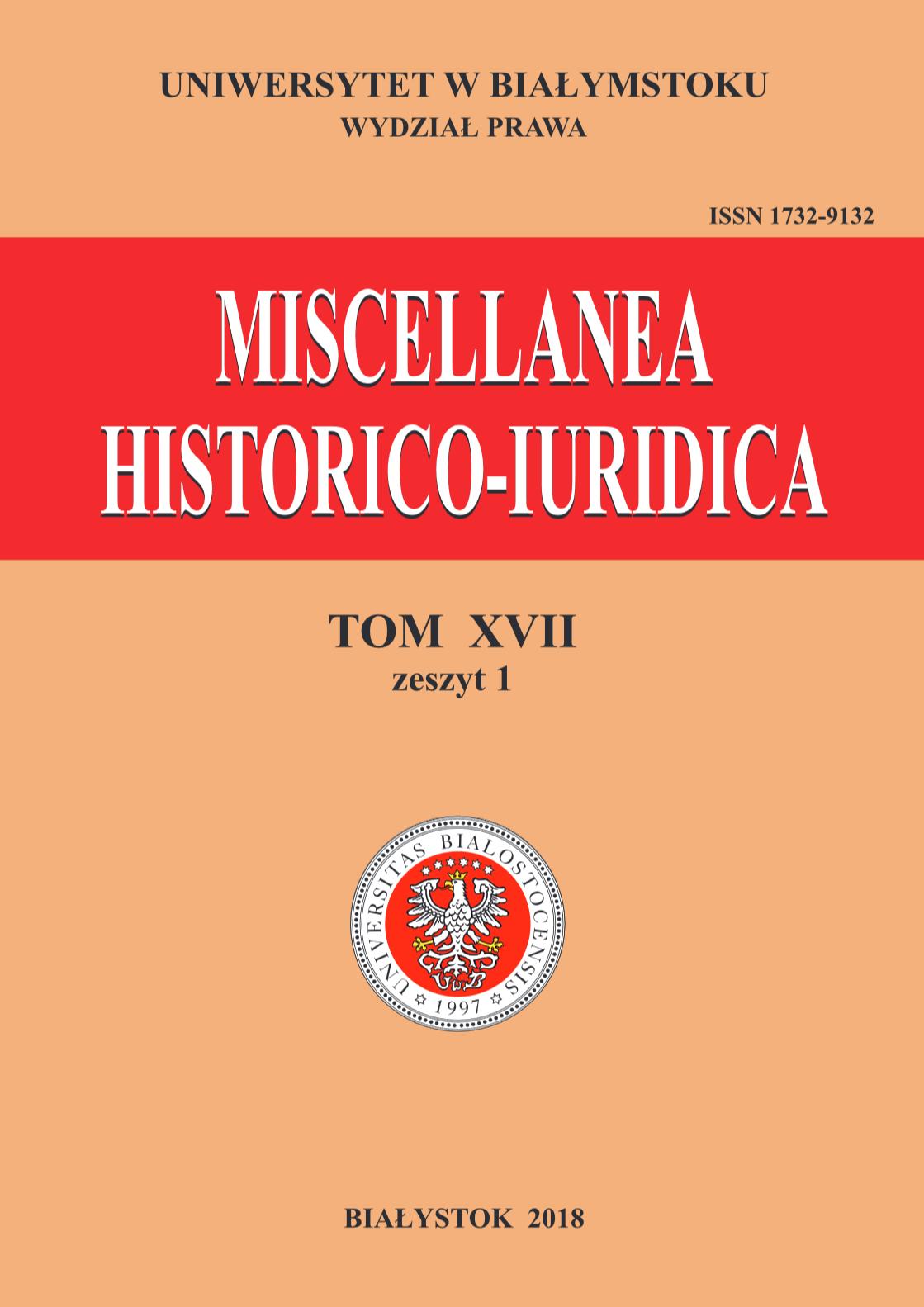The fight for a secular state in the Second Polish Republic. Memorial of the Polish Association of Free Thought from 1933
Keywords:
The Second Polish Republic, Polish Association of Free Thought, freethinking, secularization, vital records, state-church relationsAbstract
The article aims to outline the issues involved in attempts to secularize the Polish state in the interwar period, with particular emphasis on the activity of the free- thinking movement. Through a brief description of how the freethinker’s attitude evolved over the years, propagating its ideas in Poland during the partitions, and the history of the Polish Association of Freethinkers and the Polish Association of Free Thought, the author presents the PAFT memorial sent to prime minister Janusz Jędrzejewicz in 1933. The letter outlines the problems which irreligious citizens and citizens being members of unrecognized religions had to struggle with, as well as arguments for the development of secular regulations on marital law, registration of civil status and burial of the deceased. The author then attempts to answer the question why these postulates were never implemented on the basis of an analysis of the further fate of PAFT and relations between the Catholic Church and the Polish state.
References
Manifest Rady Miejskiej w Łodzi do Sejmu Ustawodawczego o ustanowienie powszechnego i niezależnego od władz duchownych urzędu stanu cywilnego (Archiwum Akt Nowych, Zespół Ministerstwo Wyznań Religijnych i Oświecenia Publicznego), syg. 641 - Akta stanu cywilnego - projekty ustaw w zakresie prowadzenia ksiąg stanu cywilnego, poprawki, opinie, okólniki, przepisy, sprawy uregulowania różnic międzydzielnicowych.
Memorjał Zarządu Głównego Polskiego Związku Myśli Wolnej do Prezesa Rady Ministrów, z dn. 23 XI 1933 r. (Archiwum Akt Nowych, Zespół Ministerstwo Wyznań Religijnych i Oświecenia Publicznego), syg. 641 - Akta stanu cywilnego - projekty ustaw w zakresie prowadzenia ksiąg stanu cywilnego, poprawki, opinie, okólniki, przepisy, sprawy uregulowania różnic międzydzielnicowych.
Adamów K., Zarys dziejów ruchu wolnomyślicielskiego w II RP, http://www.racjonalista.pl/kk.php/s,5406 (09.06.2007, dostęp: 17.04.2018).
Hrynicki W., Organizacja rejestracji aktów stanu cywilnego w Polsce w ujęciu historycznym, „Ius Novum” 2016, nr 4.
Jemielity W., Akta stanu cywilnego w Księstwie Warszawskim i Królestwie Polskim, „Prawo Kanoniczne” 1995 nr 1-2 (38).
Krasowski K., Prawo o aktach stanu cywilnego w II Rzeczpospolitej, „Kwartalnik Prawa Prywatnego” 1995, z. 2.
Litwin J., Prawo o aktach stanu cywilnego. Jego geneza i zasady przewodnie, „Demokratyczny Przegląd Prawniczy” 1946, nr 3-4.
Myśl Wolna. Delegacja wolnomyślicielska u tow. prezydenta Ziemięckiego, „Łodzianin” 1929 nr 10 (699).
Pełka L., Kształtowania się polskiego ruchu laickiego, [w:] 100 lat polskiego ruchu świeckiego (specjalna wkładka), „Res Humana” 2008, nr 1(92).
Redzik A., Komisja tworzenia dobrego prawa, „Palestra” nr 9-10/2009.
Trzciński A., Stosunki państwo-Kościół po zamachu majowym, http://www.racjonalista.pl/kk.php/s,5897 (24.05.2008, dostęp: 19.04.2018).
Wachowska B., Polski Związek Myśli Wolnej (1928-1936), „Acta Universitatis Lodziensis. Folia Historica” 43/1991.







